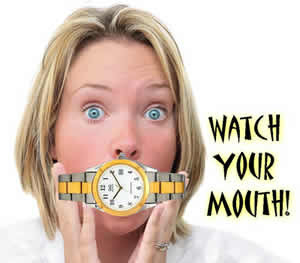 “Watch yer mouth” was good advice, back in the 1880s. But what did they mean by “watch?” “Watch your mouth,” “mind your manners,” “inch along,” “don’t baby it,” and other irksome sayings are culture survivors. Think of ‘em as behavioral guides to what someone thinks you ought to be doing, or not. Back then, men watched their mouths, but only around women. That’s still true today too, except for Hollywood. They watched their backsides even more. But try as I might, I could find no record of a cowboy ever inching along anything. Not right, they’d say. As for babying things, well that’s good advice in the bunk house, but a poor way of thinking out on the trail. Now, “watch your topknot” was a proper good-bye to a man all over the West during the Indian wars. Common sense and wishful thinking.
“Watch yer mouth” was good advice, back in the 1880s. But what did they mean by “watch?” “Watch your mouth,” “mind your manners,” “inch along,” “don’t baby it,” and other irksome sayings are culture survivors. Think of ‘em as behavioral guides to what someone thinks you ought to be doing, or not. Back then, men watched their mouths, but only around women. That’s still true today too, except for Hollywood. They watched their backsides even more. But try as I might, I could find no record of a cowboy ever inching along anything. Not right, they’d say. As for babying things, well that’s good advice in the bunk house, but a poor way of thinking out on the trail. Now, “watch your topknot” was a proper good-bye to a man all over the West during the Indian wars. Common sense and wishful thinking.
“Watch you mean,” the young cowboy asked the trail boss, “I can’t say no cuss words all the way to Tombstone?”
“I mean there is no magic in your tongue if you’re spitting on words all the time. Not watching your mouth casts a dangerous spell all around you. Why ‘n hell you think I’m always telling you to ride drag at the back of the herd? It’s cause cows don’t pay no never mind to P-R-O-F-A-N-I-T-Y. You want me to spell it out again fer you?”
